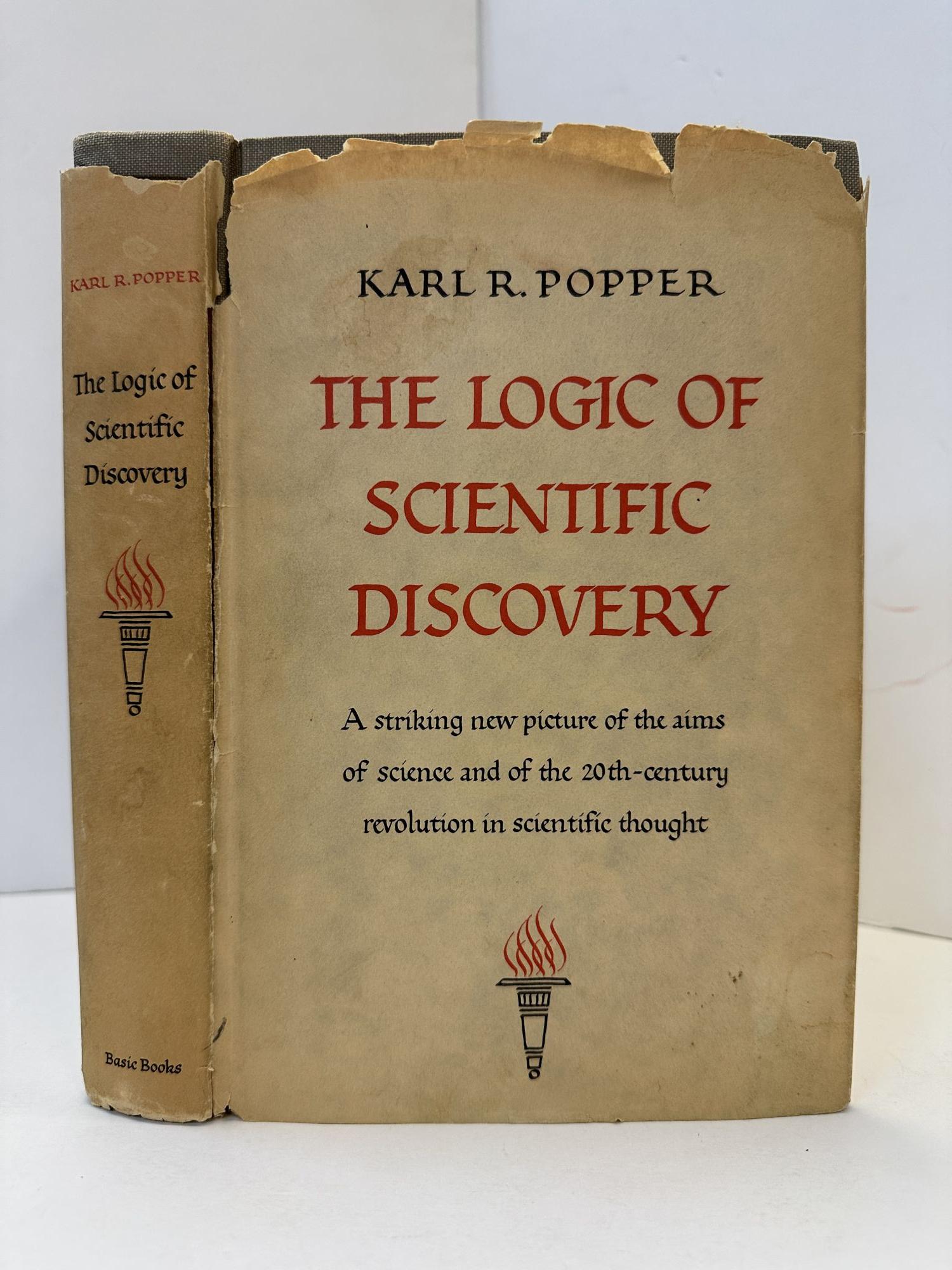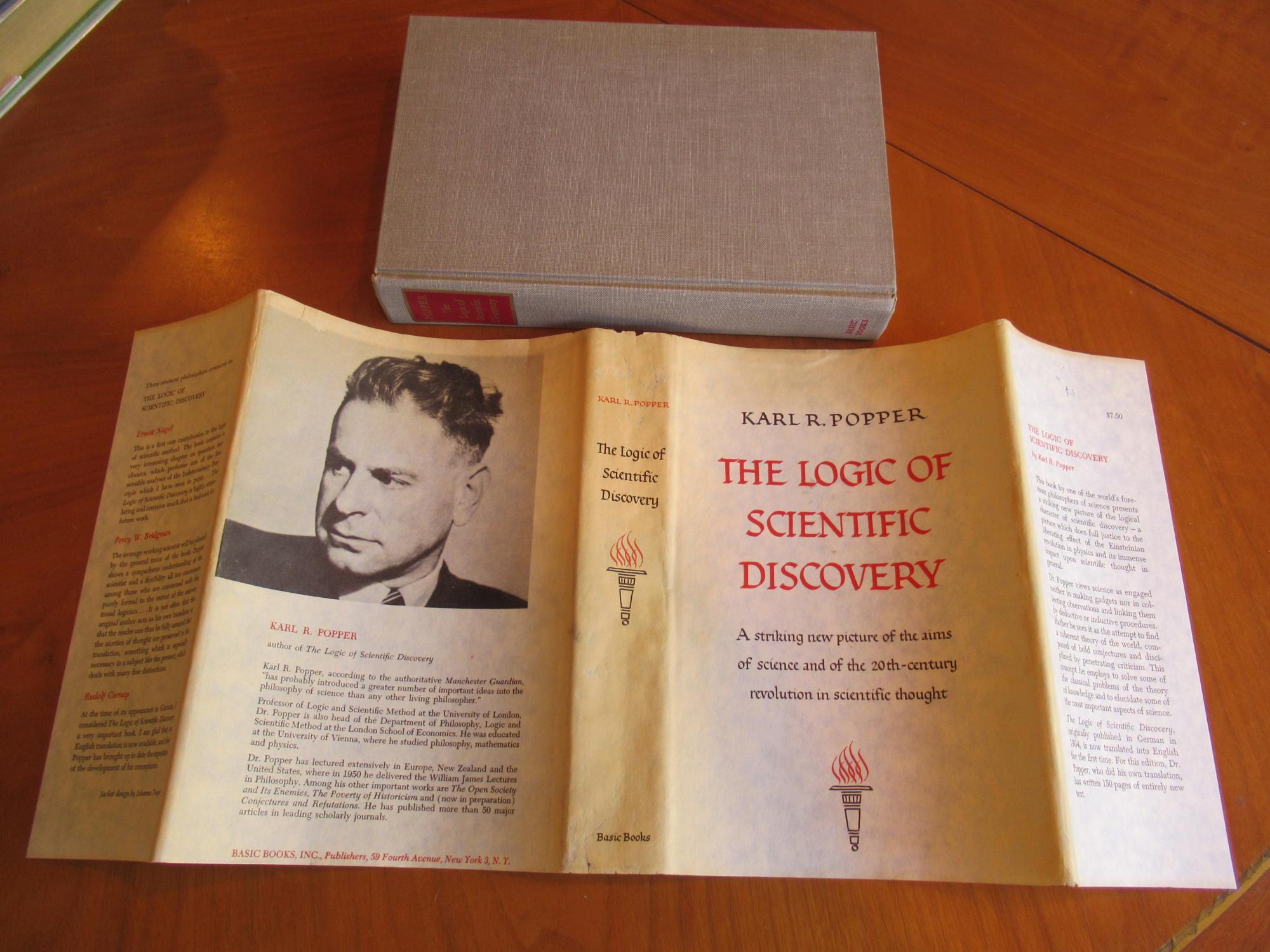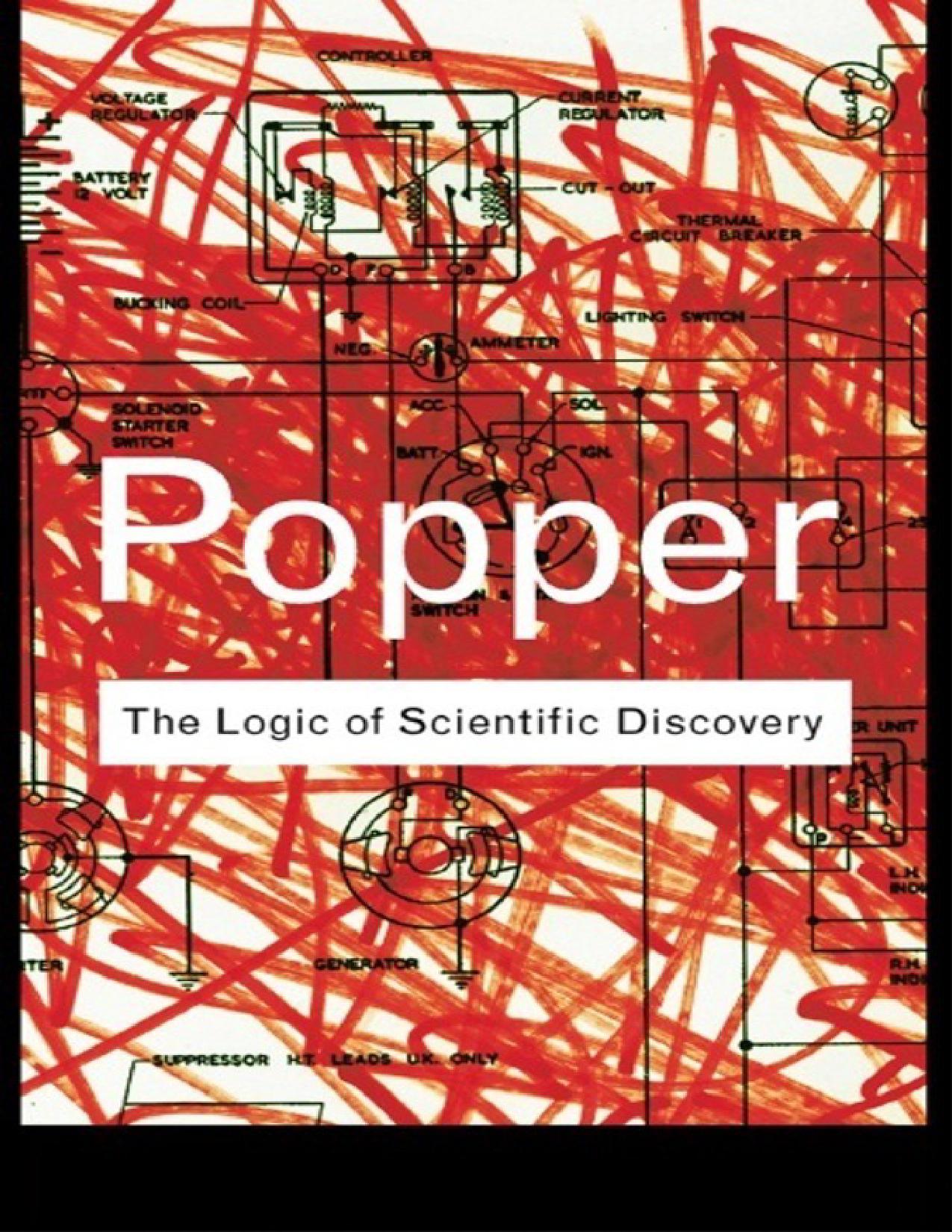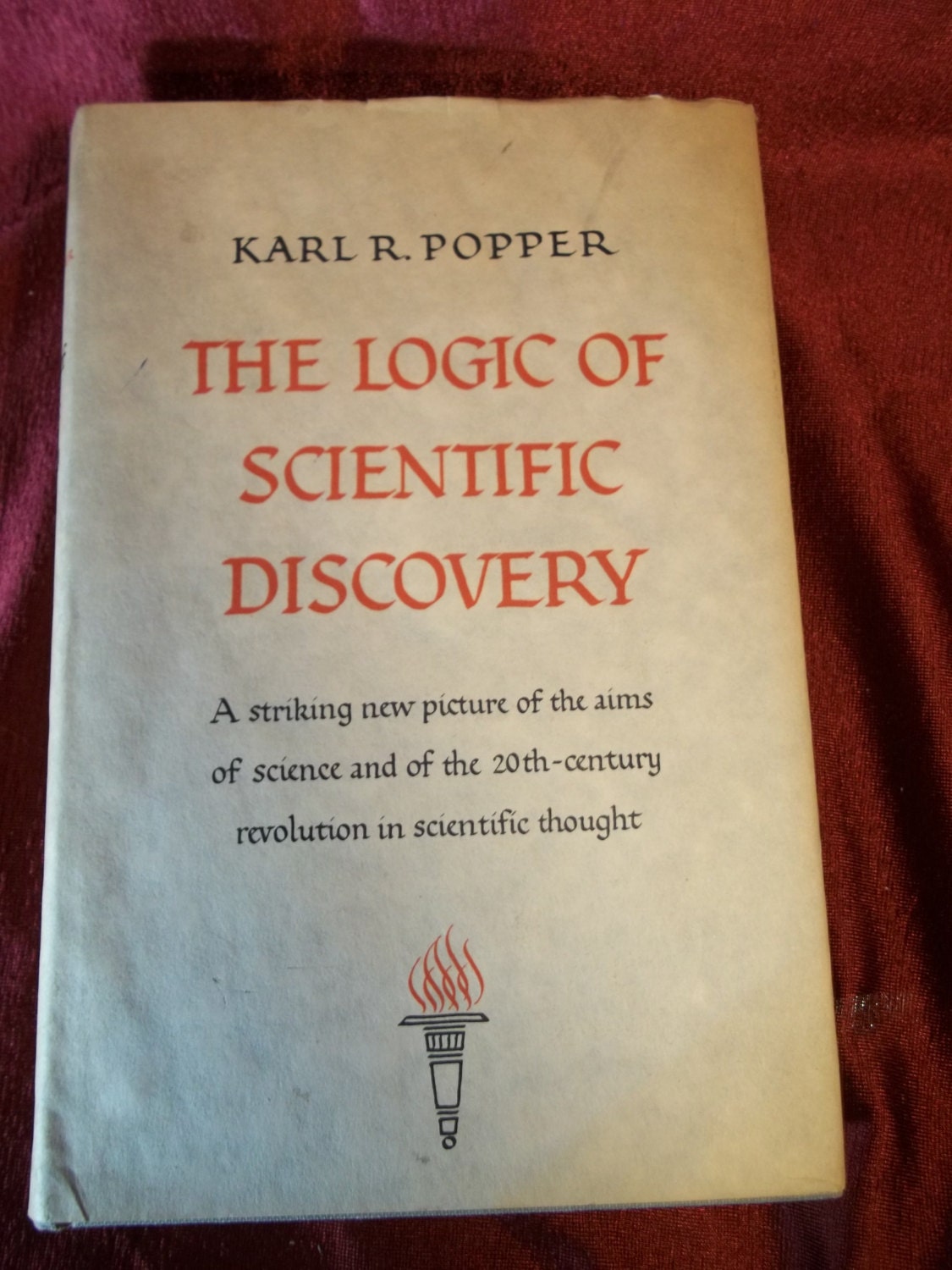
The Logic of Scientific Discovery Karl Popper First Edition Signed
The logic of scientific discovery by Popper, Karl R. (Karl Raimund), 1902-1994. Publication date 2002. It presents succinctly Popper's view of science and his solutions to two fundamental problems of the theory of knowledge: the demarcation of science from non-science, and the role of induction in the growth of scientific knowledge.

The Logic of Scientific Discovery Karl Popper First Edition Signed
The_Logic_Of_Scientific_Discovery_Karl_Popper.pdf Bookreader Item Preview

The Logic of Scientific Discovery Karl Popper Books
Popper, Karl The Logic Of Scientific Discovery by Karl Popper. Publication date 2000 Usage Public Domain Mark 1.0 Topics Philosophy Collection opensource Language English. PART I Introduction to the Logic of Science. 1 A Survey of Some Fundamental Problems. 3. 1 The Problem of Induction.

THE LOGIC OF SCIENTIFIC DISCOVERY by Popper, Karl R. Hardcover (1959) First English Edition
The Logic of Scientific Discovery. Naomi Bliven, New Yorker. Karl Popper The Logic of Scientific Discovery London and New York. Logik der Forschung first published 1935 by Verlag von Julius Springer, Vienna, Austria First English edition published 1959 by Hutchinson & Co. First published by Routledge 1992

The Logic of Scientific Discovery Summary Karl Popper
David Miller once pointed out to me that more than half of Popper's The Logic of Scientific Discovery is taken up with discussions of probability. I checked this claim using the 1972 6th revised impression of The Logic of Scientific Discovery, and found that of the approximately 450 pages of text, approximately 250 are to do with probability.
Jual Buku Popper The logic Of Scientific Discovery Shopee Indonesia
The Logic of Scientific Discovery. Karl R. Popper, Karl Raimund Popper. Psychology Press, 2002 - Philosophy - 513 pages. Described by the philosopher A.J. Ayer as a work of 'great originality and power', this book revolutionized contemporary thinking on science and knowledge. Ideas such as the now legendary doctrine of 'falsificationism.

The Logic of Scientific Discovery NHBS Academic & Professional Books
The Logic of Scientific Discovery. By Karl Popper. Edition 2nd Edition. First Published 2002. eBook Published 21 February 2002. Pub. Location London. Imprint. This astonishing work ranks alongside The Open Society and Its Enemies as one of Popper's most enduring books and contains insights and arguments that demand to be read to this day.

The Logic Of Scientific Discovery (First English Language Edition, With 150 Pages New Content
The Logic of Scientific Discovery is Karl Popper's great work in which he lays out his thesis of deductivism -- a logical approach to science based on the falsification, rather than confirmation, of hypotheses. The act of confirming a hypothesis cannot be made deductively valid, because it commits the logical fallacy of affirming the consequent.

The Logic of Scientific Discovery by Karl R Popper First American Edition 1959 from Dale
Description. Described by the philosopher A.J. Ayer as a work of 'great originality and power', this book revolutionized contemporary thinking on science and knowledge. Ideas such as the now legendary doctrine of 'falsificationism' electrified the scientific community, influencing even working scientists, as well as post-war philosophy.

The logic of scientific discovery Popper, Karl Raimund knihobot.sk
Ideas such as the now legendary doctrine of 'falsificationism' electrified the scientific community, influencing even working scientists, as well as post-war philosophy. This astonishing work ranks alongside The Open Society and Its Enemies as one of Popper's most enduring books and contains insights and arguments that demand to be read to this.

Popper, The Logic of Scientific Discovery Xenotheka
The logic of scientific discovery. $84.50. (1) Only 1 left in stock - order soon. 2014 Reprint of Original 1959 Edition. Exact facsimile of the original edition, not reproduced with Optical Recognition Software. This book by one of the world's foremost philosophers of science presented a striking new picture of the logical character of.

The Logic of Scientific Discovery 9780415078924 Sir Karl Popper Boeken
Summary. Some of the ideas that Karl Popper set out in his Logic of Scientific Discovery may be familiar to those with an interest in philosophy. Thus, people may readily identify him with the idea of falsifiability as the mark of science and of the fallibility of even our best scientific knowledge. They may know of his emphasis on the logical.

The Logic Of Scientific Discovery by Karl R. Popper First
It is one of the most important books ever written on the philosophy of science. Despite this, an English translation, The Logic of Scientific Discovery, was not published until 1959. Popper visited the University of London twice during 1935-36, where his work aroused the sympathetic interest of Professor John Woodger.

The Logic of Scientific Discovery Karl Popper First Edition Signed
Other articles where The Logic of Scientific Discovery is discussed: positivism: The verifiability criterion of meaning and its offshoots:.his Logik der Forschung (1935; The Logic of Scientific Discovery), insisted that the meaning criterion should be abandoned and replaced by a criterion of demarcation between empirical (scientific) and transempirical (nonscientific, metaphysical.

The Logic of Scientific Discovery by Karl Popper (Free Summary) YouTube
In The Logic of Scientific Discovery Karl Popper presents his brilliant thesis that no amount of positive experimentatal results can prove a scientific theory to be correct but a single negative result can prove a theory to be wrong. According to Popper, science is not a collection of established laws but rather a system by which hypotheses

Karl Popper's "Logic of Scientific Discovery" An Overview YouTube
The Logic of Scientific Discovery. Karl Raimund Popper. Psychology Press, 2002 - Philosophy - 479 pages. Described by the philosopher A.J. Ayer as a work of 'great originality and power', this book revolutionized contemporary thinking on science and knowledge. Ideas such as the now legendary doctrine of 'falsificationism' electrified the.
- Oudste Dochter Van Prinses Irene
- Thank God I Do Chords
- Personal Assistant Van Een Officier In Het Leger
- Alle Voetbalclubs Van De Wereld
- Bahamas Hotel Atlantis Paradise Island
- Soldaat Van Oranje Cast Musical
- Paul De Leeuw Vegan Streaker
- The Sound Of Silence Vertaling
- Slechtste Chauffeur Van Nederland Seizoen 9
- Megen Op De Bres Voor